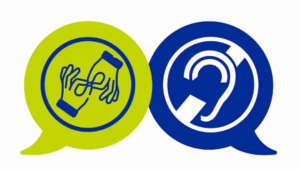What is Learning and Development? An overview of some new offerings
Having skilled interpreters with linguistic expertise and providing workers with cultural education is only part of expanding your company and “going global”. Refining policies, practices, and structures is also an integral part of creating an international operation.

In some industries, such as medical or legal fields, the culture demands that certain specialist knowledge is common. It’s vital to have employees who can grasp the terminology and/or linguists who can carry your points across language barriers; but what about the other necessary training for navigating the modern international workplace?
Global Arena offers supplemental, ad hoc learning modules for learning and development that can be highly beneficial to your business. They help you apply existing policies to language service contractors as well as explain them to employees from different cultures. Some of the topics covered by this further education include the following:
HIPAA:
The common abbreviation for the Health Insurance Portability and Accountability Act.
HIPAA is a piece of legislation designed to regulate how health information is handled between patients, providers, and other stakeholders. Medical interpreters must understand not only what is said in an exam room; but also the importance of doctor-patient confidentiality. In turn, some medical settings may have regular contact with people from countries where information sharing practices are quite different. (Note that “medical settings” here includes not only hospitals, but also insurance companies, private offices… Any conglomerate that handles identifiable health data).
Standardizing HIPAA training for all of your employees makes for a more secure, compliant organization.
OSHA:
Short for the Occupational Safety and Health Act. OSHA is a piece of legislation intended to enforce safety standards; and a comfortable, risk-free environment for all workers. The Understanding OSHA program includes any interpreters or translators you employ; it’s hard to contract driven talent for a dangerous or stressful workplace. Some places (e.g, police stations) have an inherent risk that those present must know and accept. However, in other cases, the employer may not realize when an aspect of the environment is harmful to employees. Learning more about workplace culture can empower everyone to point out, address, and resolve any potential OSHA violations.
American Sign Language:
First things first, this module is not a course in ASL. If you read the past blog post about ASL interpreting, you might recall that ASL is a full language; with its own grammar, syntax, vocabulary, and dialects.
To become fully fluent takes years of study which is beyond the scope of these learning and development offerings.
However, the ASL module can help you clear some of the widespread misconceptions about ASL and its speakers. ASL is not just “signed English”; the language and culture have complex history. Does your team know when it’s appropriate to use Deaf with a capital D, instead of “deaf,” to refer to individuals?
Understanding these concepts goes a long way towards creating more respectful and informed interactions with Deaf folks you may encounter.
Working with Interpreters:
There are two modules under this heading:
- for professional settings
- and one for mental health facilities.
Working with Interpreters course is useful for any teams or individual employees who need, or want, to know more about working with interpreters; particularly if they’ve never used one before. Learning the basics of the interpreting industry, such as the codes of standards and ethics that interpreters follow; can help streamline the process for your staff; interpreters, and non-English speaking clients.
In addition, mental health contexts often feature unique challenges that the interpreter and client must overcome. The confidentiality mandated by HIPAA applies to therapy sessions; and OSHA requires interpreter safety in psychiatric and mental health facilities. Educate yourself about the best practices for working with interpreters in these settings; are you and your team well-prepared.
While the lessons are framed here from a language industry perspective, you are encouraged to try them regardless of your field. Perhaps you want to brush up your OSHA knowledge following an incident, or connect more meaningfully with a Deaf coworker.
The modules offer specific opportunities for development and personal growth; but there’s not enough room in this overview to go deep.
Stay tuned for posts that cover each of them in detail; there will be learning and development opportunities for everyone.




